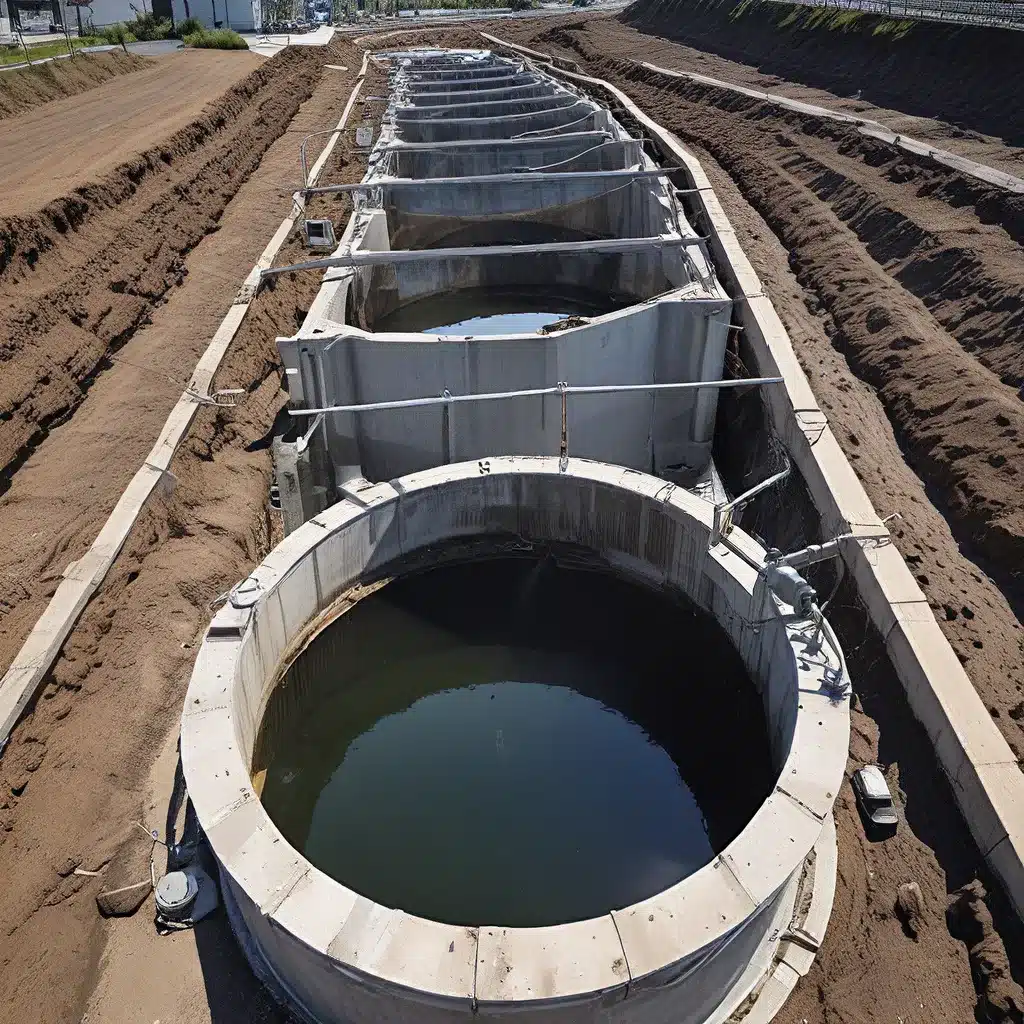
As the world grapples with the ever-increasing challenge of environmental sustainability, the wastewater treatment industry has stepped up to the plate, unveiling a wave of cutting-edge technologies that are poised to revolutionize the way we manage our water resources. From innovative membrane filtration systems to advanced oxidation processes, the latest advancements in pollution prevention are not only making our water cleaner, but also more efficiently and cost-effectively.
Tackling the Paradigm Shift in Wastewater Treatment
The traditional approach to wastewater treatment has long been centered around the concept of “end-of-pipe” solutions, where pollutants are removed from the water before it is discharged back into the environment. However, this reactive model is rapidly giving way to a more proactive, holistic approach that seeks to prevent pollution at the source.
Wastewater treatment plants are now embracing a new era of technological advancements, driven by the need to meet increasingly stringent environmental regulations and the growing public demand for cleaner, more sustainable water resources.
One of the key drivers behind this paradigm shift is the recognition that traditional wastewater treatment methods often fall short in addressing the complex and diverse array of contaminants present in our water systems. From microplastics and pharmaceutical residues to heavy metals and industrial chemicals, the modern wastewater stream is a veritable minefield of pollutants that require innovative solutions to effectively remove and prevent.
The Rise of Membrane Filtration Technologies
At the forefront of this technological revolution in wastewater treatment is the growing prominence of membrane filtration technologies. These advanced systems, which use semi-permeable membranes to remove impurities from water, offer a number of significant advantages over conventional treatment methods.
Membrane filtration is highly effective at removing a wide range of contaminants, including suspended solids, bacteria, viruses, and even dissolved organic matter. By physically separating these pollutants from the water, membrane systems can achieve high levels of purity and clarity, making the treated water suitable for a variety of reuse applications, such as agricultural irrigation, industrial processes, or even potable water supply.
Moreover, membrane filtration technologies are increasingly becoming more energy-efficient and cost-effective, thanks to advancements in materials science and process optimization. The use of advanced polymers, nanostructured membranes, and integrated hybrid systems has significantly improved the performance and durability of these systems, while also reducing their operational and maintenance requirements.
Harnessing the Power of Advanced Oxidation Processes
Alongside the rise of membrane filtration, another exciting area of innovation in wastewater treatment is the growing application of advanced oxidation processes (AOPs). These highly effective methods rely on the generation of powerful oxidizing agents, such as hydroxyl radicals, to break down and destroy a wide range of organic and inorganic pollutants.
AOPs have been particularly effective in addressing the challenge of persistent and recalcitrant contaminants, which are often resistant to traditional biological or chemical treatment methods. By leveraging the high reactivity of hydroxyl radicals, AOPs can rapidly oxidize and mineralize these difficult-to-remove pollutants, converting them into harmless byproducts like carbon dioxide and water.
One of the key advantages of AOPs is their versatility – they can be tailored to target specific contaminants or combined with other treatment technologies, such as membrane filtration, to create highly efficient and versatile wastewater treatment systems. This flexibility allows water treatment providers to adapt their strategies to the unique challenges and requirements of different water sources and applications.
Integrating Renewable Energy and Smart Technologies
As the wastewater treatment industry continues to evolve, it is also embracing the integration of renewable energy sources and smart technologies to enhance the sustainability and efficiency of its operations.
Inland Waters Inc., for example, has been at the forefront of this trend, leveraging solar power, wind energy, and advanced process control systems to optimize the performance of their wastewater treatment facilities. By reducing their reliance on fossil fuels and harnessing the power of renewable sources, these water treatment providers are not only minimizing their environmental impact but also driving down the overall costs of their operations.
Moreover, the integration of smart technologies, such as predictive analytics, artificial intelligence, and the Internet of Things (IoT), is enabling water treatment providers to better monitor, optimize, and respond to the dynamic conditions of their systems. These advanced tools can help identify and address potential issues before they escalate, while also facilitating more efficient resource management and process optimization.
The Future of Wastewater Treatment: Towards a Sustainable and Circular Economy
As the world continues to grapple with the challenges of water scarcity, resource depletion, and environmental degradation, the wastewater treatment industry’s role in shaping a more sustainable future is becoming increasingly crucial.
The latest advancements in pollution prevention technologies, such as membrane filtration, advanced oxidation processes, and the integration of renewable energy and smart technologies, are not only revolutionizing the way we treat our wastewater, but also paving the way towards a more circular and sustainable economy.
By effectively removing and preventing a wide range of contaminants, these innovative solutions are enabling the reuse and recycling of wastewater for a variety of beneficial purposes, such as agricultural irrigation, industrial processes, and even potable water supply. This shift towards a more circular model of water management not only reduces the strain on our freshwater resources but also minimizes the overall environmental impact of our water consumption patterns.
Moreover, the integration of renewable energy and smart technologies is helping to drive down the carbon footprint and operational costs of wastewater treatment, making these services more accessible and sustainable for communities and industries alike.
As we continue to navigate the complex and ever-evolving landscape of environmental challenges, the wastewater treatment industry’s commitment to innovation and sustainability will be crucial in shaping a more resilient and equitable future for all. By embracing the latest advancements in pollution prevention technologies, we can unlock the vast potential of our water resources and contribute to the creation of a more sustainable and circular economy.


